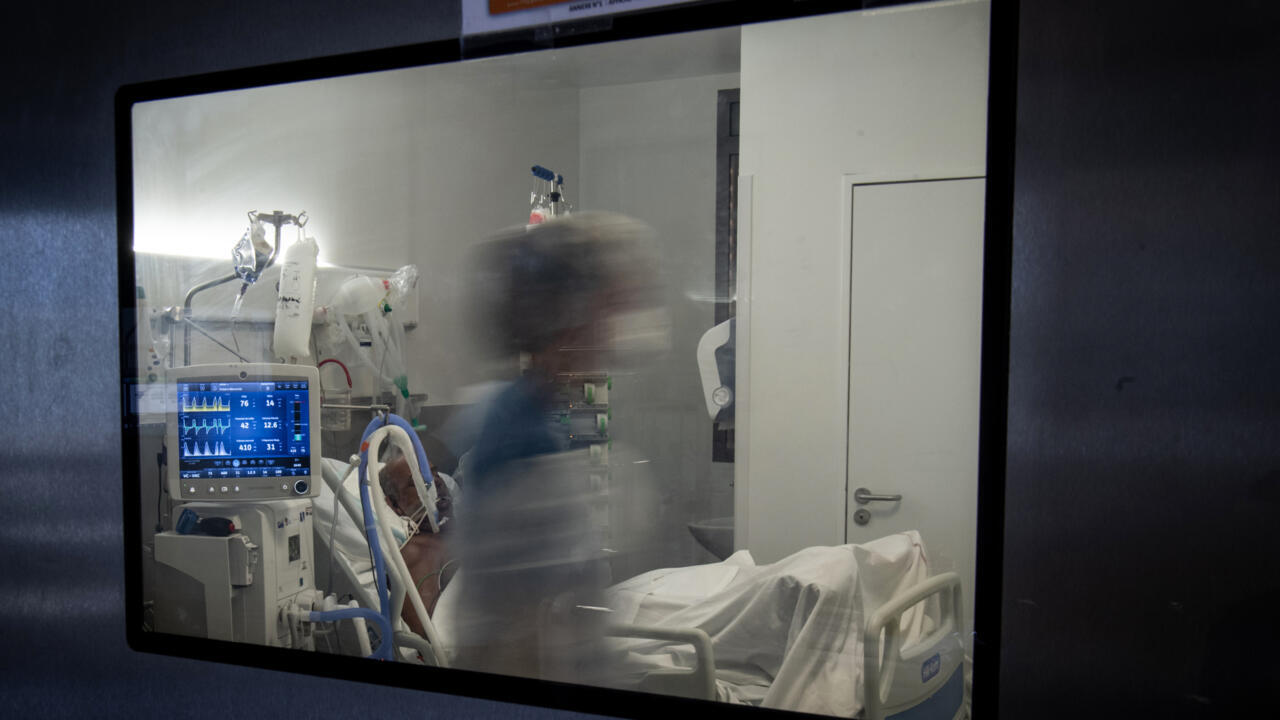Did the Minister of Health Olivier Véran go too quickly by saying last week that we had "passed the peak of the rebound"?
Omicron's new variant, BA.2, predominant and more transmissible than its predecessor, BA.1, is still in wide circulation.
For a few days, the contaminations finally seem to be drawing a timid reflux: 137,342 cases in 24 hours Thursday evening, or around 21,000 less than a week earlier.
“We may have started to begin the descent but we are a bit in the fog”, comments to AFP epidemiologist Antoine Flahault, director of the Institute for Global Health at the University of Geneva.
With contaminations "probably very underestimated", the countries of Western Europe like France, "collect the shock thanks to a very high vaccination coverage", he adds.
100 deaths a day
Since there is still a gap between contamination and hospitalizations, the relaxation is not yet felt in the hospital: the trend is even still on the rise with around 25,000 infected patients admitted each day.
"The longer we let the virus circulate, the more we risk having negative collateral effects on fragile people", such as long Covid, neurological or cardiovascular damage ALAIN JOCARD AFP / Archives
According to health professionals, "the sanitary dam holds": "there is no explosion", reassures Christophe Rapp, infectious disease specialist at the American hospital in Paris.
"But the more we let the virus circulate, the more we risk having negative collateral effects on fragile people", such as long Covid, neurological or cardiovascular damage.
And the virus still kills: "One hundred people die on average every day right now. But that's no problem for anyone," epidemiologist Dominique Costagliola was offended last week in an interview with Express.
"At this rate, the number of deaths at the end of the year will be considerable - perhaps another 40,000!"
over the twelve months.
For the moment, France has recorded more than 18,000 Covid deaths since January.
Who are they ?
According to the French public health agency, 95% of people who die from the virus are now over 60 years old, 64% over 80 years old.
Big Absent
Unlike the first waves, "we no longer have young people in our departments who needed to be resuscitated", confirms Pierre Tattevin, head of the infectious diseases department at the Rennes University Hospital (Ille-et-Vilaine).
“Those who die today are either very old or very immunocompromised,” he adds.
"Often they are missing a vaccine booster, or it was done a long time ago."
Immunocompromised people - around 300,000 in France - are not very receptive to the vaccine.
Immunocompromised people - around 300,000 in France - are not very receptive to the vaccine GEOFFROY VAN DER HASSELT AFP
In addition, among the deaths, "there are still a few unvaccinated, most often elderly people, very socially isolated", notes Christophe Rapp.
More transmissible than the previous variants, Ba.2 is also much less lethal.
Still, the mortality linked to this pandemic is "still not negligible", observes epidemiologist Mircea Sofonea.
“We cannot live in permanent anxiety about this virus, but prevention must be an issue. I regret that there has been no presidential debate on this subject,” he adds.
After two years of a pandemic which has monopolized minds and debates, the Covid-19 is indeed a major absentee from the programs of the candidates.
“From a public health point of view, you have to be able to anticipate the waves and not just suffer them,” remarks Mr. Sofonea.
However, for the next one, if there is one, "we don't know the plan".
"We are now in a favorable situation since there has been a significant increase in post-infectious and post-vaccination immunity in recent months," he adds.
But "nothing says that the next variant will be less virulent".
© 2022 AFP

